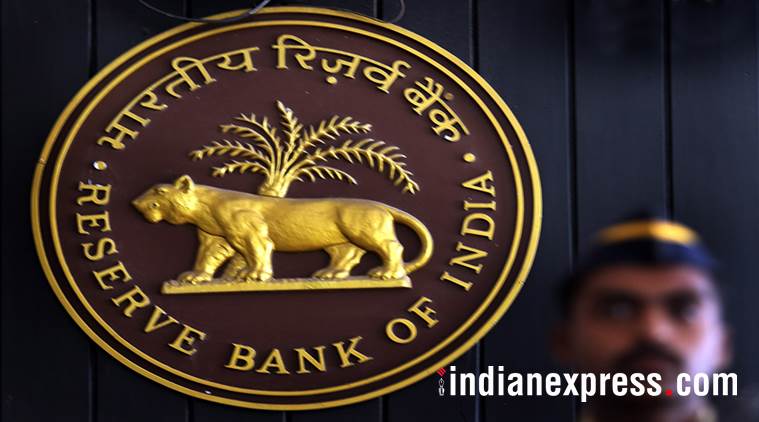RBI-Centre turf war: Tussle not new, Viral Acharya just flagging new issues
The previous three predecessors of current Governor Urjit Patel -- YV Reddy, D Subbarao and Raghuram Rajan -- had conflicts with the governments in Delhi on various issues.
 On Friday, RBI Deputy Governor Viral Acharya warned that “governments that do not respect central bank independence will sooner or later incur the wrath of financial markets.” (Express Photo by Pradip Das)
On Friday, RBI Deputy Governor Viral Acharya warned that “governments that do not respect central bank independence will sooner or later incur the wrath of financial markets.” (Express Photo by Pradip Das)
Tussle between the government and the Reserve Bank of India is not something new. Turf war between the two sides has been going on for many years as successive Governors sought to fiercely protect the autonomy and independence of the central bank. The previous three predecessors of current Governor Urjit Patel — YV Reddy, D Subbarao and Raghuram Rajan — had conflicts with the governments in Delhi on various issues.
On Friday, when RBI Deputy Governor Viral Acharya warned that “governments that do not respect central bank independence will sooner or later incur the wrath of financial markets, ignite economic fire, and come to rue the day they undermined an important regulatory institution”, he was echoing the sentiments of past Governors. While the issues this time are proposal for an indepdent payment regulator, relaxing the lending curbs on weak PSU banks and payment of higher surplus to the government, what dogged previous Governors were pressure against hiking interest rates, asset quality review and bringing the debt managment body under the government’s purview.
Former Governor YV Reddy, who was RBI Governor from 2003 to 2008, says, “history shows that independence or autonomy (two words used here inter-changeably) of a central bank is not like a law of physics. It is to ensure that people have trust and confidence in the institution that issues (promissory notes) currency or creates money with no collateral, by making the institutional apolitical.”
READ | Pressure on RBI to ease credit to small firms, relax lending norms
According to Reddy, the government has powers to give directions. “But, in giving directions also, unlike other statutes, consultation with the Governor is necessary in regard to the RBI before issuing the directions. “Independence to central bank is granted by the government with a specific purpose. Experience has also shown that trust and confidence will improve if the spending authority, viz., the government is separate from the money creating authority, that is, central bank or monetary authority,” he said in a speech in Chennai on February 22, 2017. EDITORIAL | An area of conflict
“Under all circumstances, it is in the interest of the government and the RBI to continuously convince the people that the RBI is apolitical, professional and a performing asset of the country,” Reddy said. Reddy who had tightened the monetary policy and ringfenced the Indian economy when the global financial crisis erupted in late 2007 had also his share of tussle with the UPA government.
Raghuram Rajan who was the RBI Governor between 2013 and 2016, said, “in this environment, where the central bank has to occasionally stand firm against the highest echelons of central and state government, recall the words of my predecessor, Dr. Subbarao, when he said “I do hope the Finance Minister will one day say, ‘I am often frustrated by the Reserve Bank, so frustrated that I want to go for a walk, even if I have to walk alone. But thank God, the Reserve Bank exists.’” I would go a little further. The Reserve Bank cannot just exist, its ability to say “No!” has to be protected.”
“At the same time, the central bank cannot become free of all constraints, it has to work under a framework set by the Government. This requires a number of actions,” Rajan said in his last speech as the Governor at St Stephen’s college, Delhi, on September 3, 2016.
READ | Undermine RBI autonomy, face markets’ wrath, ignite economic fire, says Deputy Governor
Rajan said there were always government entities that are seeking oversight over various aspects of the RBI’s activities. Multiple layers of scrutiny, especially by entities that do not have the technical understanding, will only hamper decision making. “Instead, the government-appointed RBI Board, which includes ex-officio government officials as well as government appointees, should continue to play its key oversight role. In this regard, all important RBI decisions including budgets, licenses, regulation, and supervision are now either approved by the Board or one of its sub-committees. It is also important that Parliament understand what the central bank is doing,” he said.
Rajan who put up a powerful defence to safeguard the independence of the RBI went to the extent of publicly denouncing as “schizophrenic” certain recommendations of Financial Sector Legislative Reforms Commission (FSLRC), which, among other things, has suggested creation of a unified financial sector regulator along with certain powers and functions of the Reserve Bank. On Jan Dhan bank accounts, Rajan said, “when we roll out the scheme, we have to make sure that it does not go off the track. The target is universality, not just speed and numbers.” He also advised the government to focus on ‘make for India’ in lieu of ‘make in India’ as an export-led growth strategy was unlikely to work again.
On this issue of autonomy and accountability, D Subbarao, who was the Governor before Rajan, said, “there has been a lot of media coverage on policy differences between the government and the Reserve Bank.” Gerard Schroeder, the former German Chancellor, once said, “I am often frustrated by the the Bundesbank. But thank God, it exists.” I do hope (the then Finance Minister) Chidambaram will one day say, “I am often frustrated by the Reserve Bank, so frustrated that I want to go for a walk, even if I have to walk alone. But thank God, the Reserve Bank exists,” Subbarao said in one his last speeches as the RBI Governor on August 29, 2013, in Mumbai.
Like in most other developing economies, the Reserve Bank was not born autonomous; it gained its autonomy over time as a result of the lessons of international experience and the maturity of the political executive who saw the benefits of preserving the autonomy of the Reserve Bank. “On its part, the Reserve Bank earned this autonomy by staying committed to the pursuit of larger public interest. In the matter of ensuring financial stability, the government must normally leave the responsibility to the regulators, assuming an activist role only in times of crisis,” Subbarao said.
In a full length feature on the Reserve Bank in 2012, The Economist had said that the RBI is a role model for the kind of full service central bank that is back in fashion worldwide. “There is something to that,” Subbarao said.
“My philosophy has been that the nature of relationship or autonomy between Government and RBI depends on the situation. Broadly speaking, we need to emphasise autonomy in operations, harmony in policies and coordination for structural changes. In times of serious crisis, it is first line of defence, but can draw strength only from government. Autonomy depends on the subject and context also,” Reddy said. Subbarao’s advice: It is also important that the mandate of the Reserve Bank is written into the statute, so that it is protected from the political dynamics of changing governments.



- 01
- 02
- 03
- 04
- 05




























